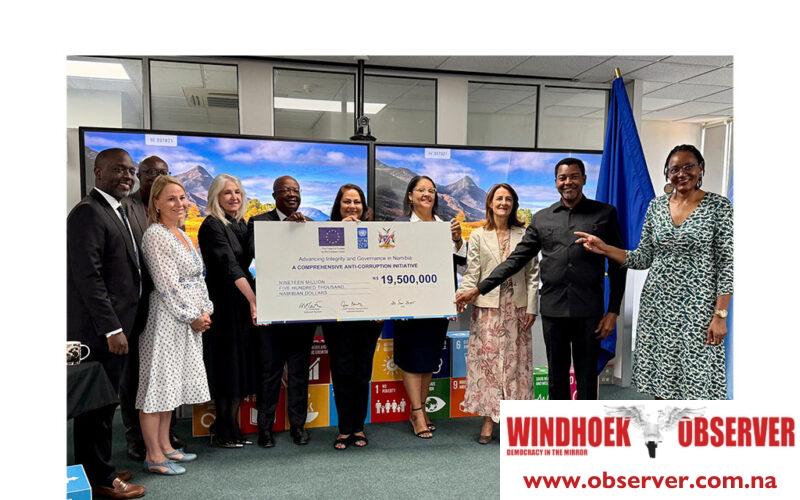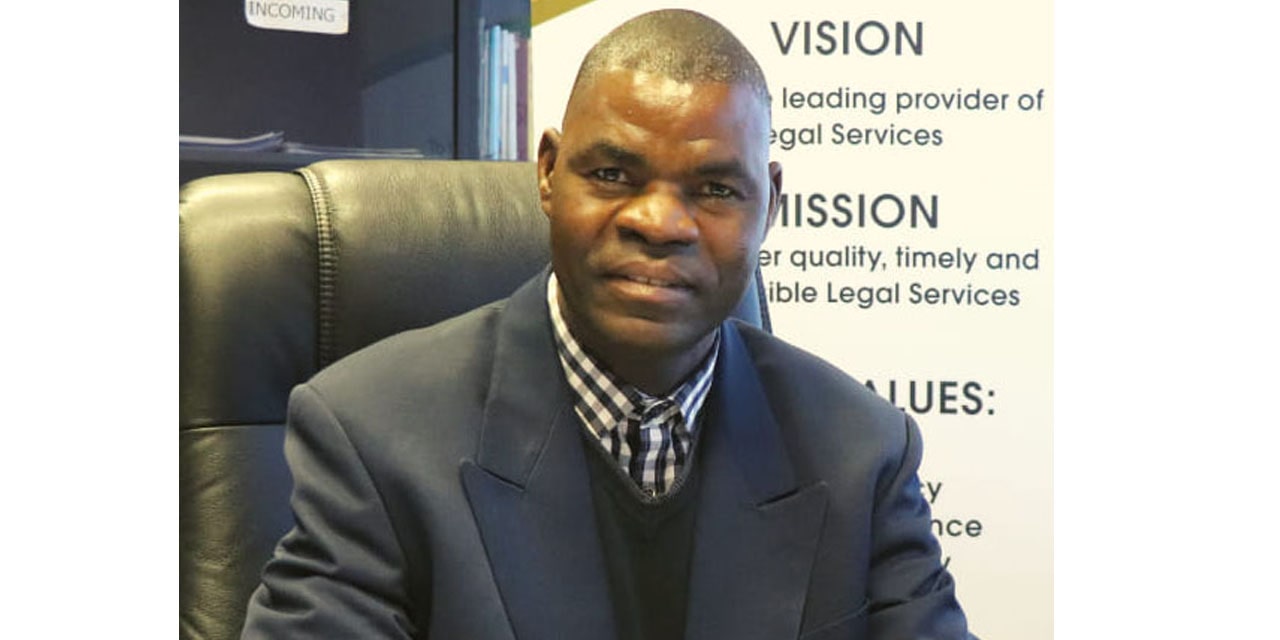Stefanus Nashama
The European Union (EU) delegation to Namibia, in partnership with the United Nations Development Programme (UNDP) and the Namibian government, has launched a good governance programme to tackle corruption and enhance transparency in the country.
On Monday, the EU allocated approximately N$19.5 million to support the UNDP-led initiative, which will run from 2025 to 2028.
The initiative seeks to promote sustainable development, accountability, and effective governance practices.
It also seeks to foster multi-stakeholder collaboration and advance critical reforms within Namibia’s governance systems.
UNDP country representative Alka Bhatia highlighted the detrimental effects of corruption, saying that it undermines democracy and human rights and perpetuates inequality.
“This project is an opportunity for us to collectively explore and create lasting solutions for generations to come,” she said.
EU ambassador to Namibia, Ana Beatriz Martins, stressed the global nature of corruption, noting its profound economic consequences.
“Corruption is not only a local or regional problem but an international concern with profound economic consequences. It fosters inequalities, especially in vulnerable regions where funds meant for healthcare, education, and infrastructure are misdirected or misappropriated,” Martins explained.
She also reiterated the EU’s commitment to aligning its efforts with Namibia’s national development agenda, particularly focusing on anti-corruption, the rule of law, and justice.
“Our engagement here in Namibia, in collaboration with the UNDP and the government of Namibia, is grounded in a vision where anti-corruption, the rule of law, and justice are interconnected and mutually reinforcing,” she added.
Erna Van Der Merwe, deputy director-general of the Anti-Corruption Commission Namibia (ACC), described the initiative as a historic milestone in the country’s fight against corruption.
“This project has a noble objective of enhancing transparency and accountability in governance by 2028,” she said.
The “Good Governance” programme aligns with Namibia’s Harambee Prosperity Plan II, the Sixth National Development Plan, and the United Nations Sustainable Development Goals (SDGs), particularly SDG 16, which focuses on promoting peace, justice, and strong institutions.
The programme’s key goals include improving public access to government information, strengthening financial management to protect public resources, and revising anti-corruption legislation to enhance Namibia’s legal framework.
Van Der Merwe stated that this collaborative effort marks a step forward in Namibia’s ongoing mission to strengthen good governance and combat corruption.
She added the programme will reduce implications for the country’s future development and democratic integrity.




